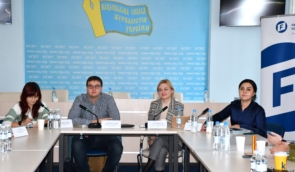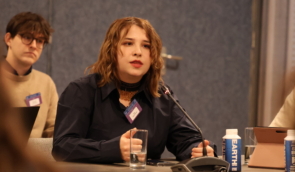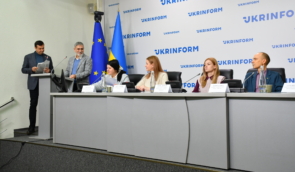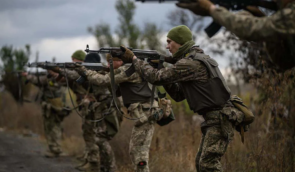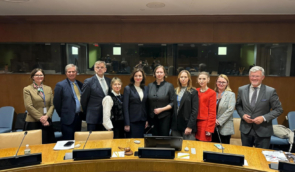ZMINA opens a photo exhibition in Brussels about Crimean political prisоners
A photo exhibition “Stories from Occupied Crimea” was opened in Brussels on 18 May 2023, marking the Day of Remembrance of the Victims of the Genocide of the Crimean Tatar People. The Human Rights Centre ZMINA prepared the exhibition in cooperation with the Mission of Ukraine to the EU and the Office of Member of the European Parliament Anna Fotyga.
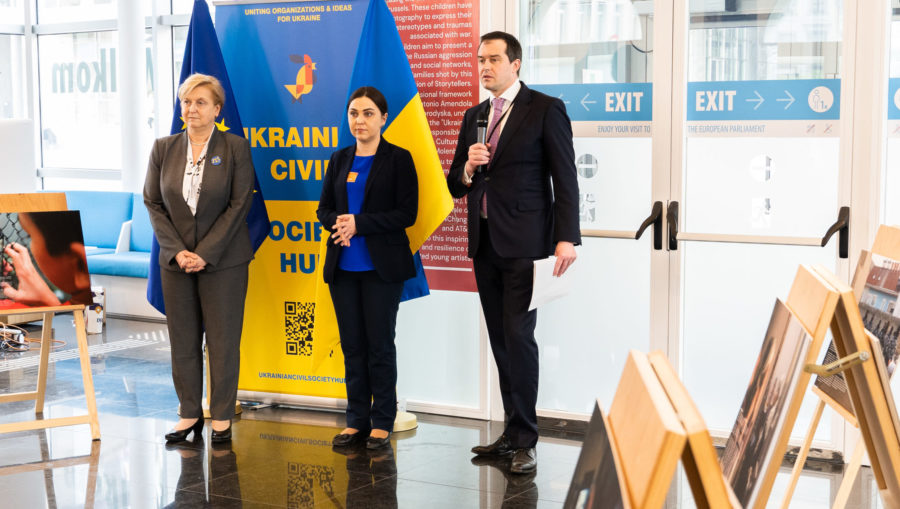
Crimean Tatar people gathered in Luxembourg Square in Brussels. They shared stories of their ancestors who were deported by the Soviet regime in 1944, as well as drew a line with the continuation of repressive practices since the beginning of Russia’s occupation of Crimea in 2014: the destruction of Crimean Tatar culture, persecution and politically motivated cases of imprisonment.
“Russia practices torture of political prisoners to forcibly obtain confessions beneficial to the occupiers. This happened to the Akhtemov brothers — they were subjected to brutal torture,” told Crimean Tatar activist Seydamet Mustafaev.
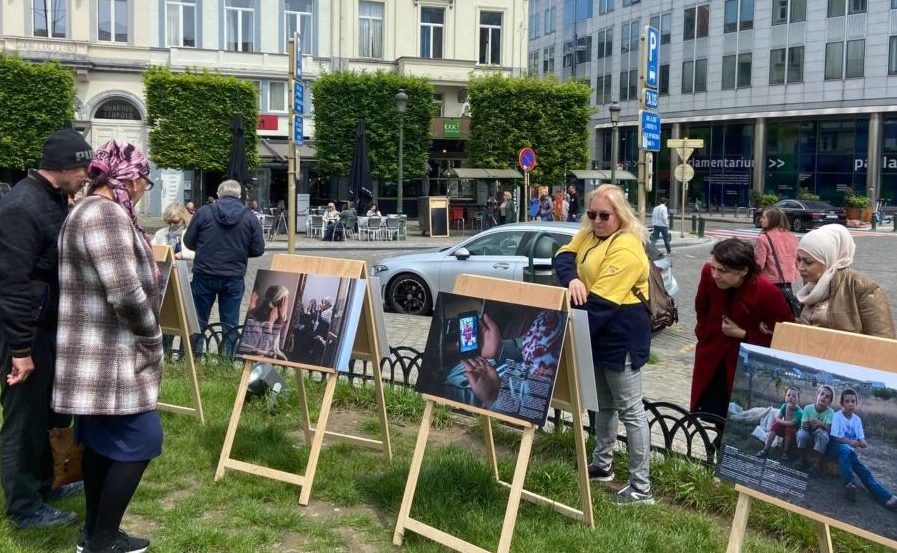
“It is a pity that on this day we gathered because of such a sad date — 79 years ago the mass deportation and genocide of the Crimean Tatars took place. Now, Crimean Tatar people are once again faced with the threat of extermination: the Russian occupiers persecute them, come to their homes at night with searches, imprison them for political reasons leaving whole streets without men – only women and children, forcibly mobilize them. The Russian authorities think that in this way they can intimidate the population of the temporarily occupied Crimea. Still, more oppression created more resistance,” underlined international advocacy manager of ZMINA Tetiana Zhukova.
Passers-by listened to speeches of the rally of the Crimean Tatars and looked at the photo exhibition — a unique chronicle of life on the peninsula illegally annexed by Russia and documentary evidence of repression against Ukrainian citizens, in particular representatives of the Crimean Tatar people.
The exhibition’s official opening took place on 23 May at the Ukrainian Hub in front of the European Parliament. Ambassador of Ukraine to the EU Vsevolod Chentsov and Member of the European Parliament Anna Fotyga, who greatly supported the Ukrainian civil society initiatives, welcomed guests of the exhibition. Crimean Tatar singer and honored artist of Ukraine, Lenara Osmanova, moved the audience with the anthem of the Crimean Tatar people.
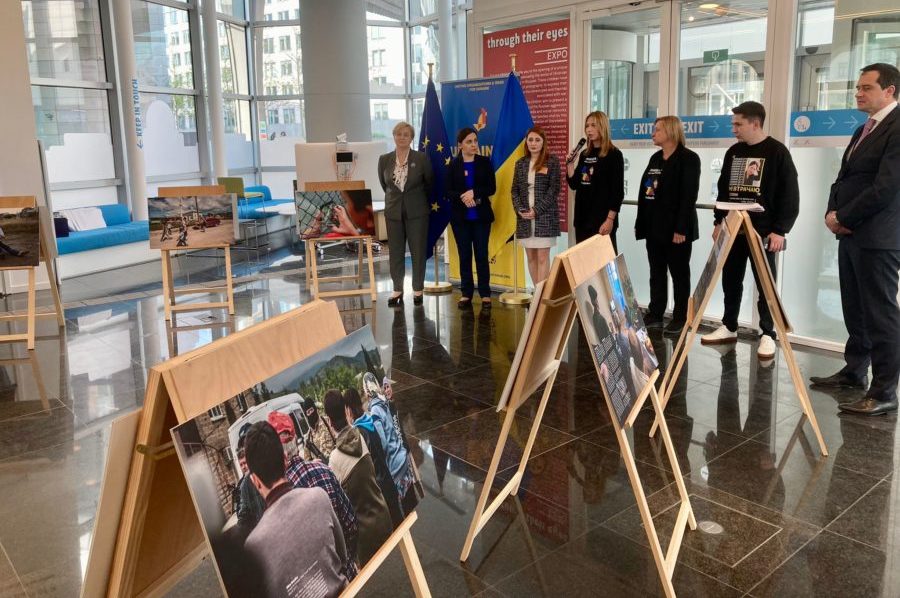
Head of the Board of ZMINA Tetiana Pechonchyk told the audience about the exhibition: “Ukrainian reporters Alina Smutko, Taras Ibragimov, and Alyona Savchuk were documenting the lives of families of political prisoners in occupied Crimea in 2014-2019. It was why they were banned from entering the Crimean peninsula for 10 to 35 years.” She also highlighted the dangers Crimean Tatar people face in the temporarily occupied Crimea: they comprise the majority of political prisoners – 117 out of 181.
Aziz Umerov, the brother of the politically imprisoned girl Leniie Umerova, told the story of his sister who was illegally detained by the Russians and isolated in Lefortovo pre-trial detention facility: “I want to show you this sweatshirt with the words “not gonna lose my fighting spirit.” These are the words of my sister from one of her latest letters. My sister bravely endures all trials and abuses. She stands strong and begs my family to stand strong too. I am asking you to act decisively on behalf of my family and the families of hundreds of political prisoners abused by Russia. I call upon you to address the Russian Federation with a request to release my sister and all citizens of Ukraine that are being held in captivity.”
Journalist and historian Gulnara Abdullaieva also shared the story of political prisoner Nariman Dzhelyal, the first deputy head of the Mejlis of Crimean Tatar People who was sentenced to 17 years in prison together with brothers Aziz Akhtemov and Asan Akhtemov.
Iryna Siedova from Crimean Human Rights Group recalled the story of Iryna Danylovych — an imprisoned citizen journalist and nurse who is not provided with medical care despite a sharp deterioration in her health and called on the international community to make every effort to free political prisoners and de-occupy Crimea.
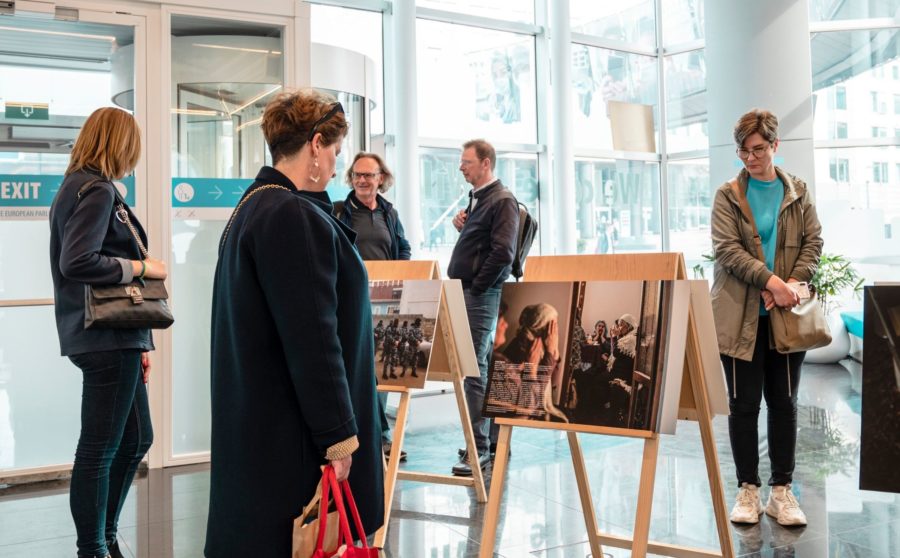
The event gathered interested passers-by and representatives of civil society, diplomatic institutions, and politicians.
ZMINA has also used its visit to Brussels for advocacy meetings and dissemination of information about the violation of human rights in the occupied Crimea, particularly among the EEAS, European Commission, European Parliament, and the Delegation of the EU to Ukraine. In addition, it held a conference and a film screening “Nariman: The Voice of Crimea”.
Photo credits: ZMINA, Human Rights House Foundation, Office of MEP Anna Fotyga
If you have found a spelling error, please, notify us by selecting that text and pressing Ctrl+Enter.

